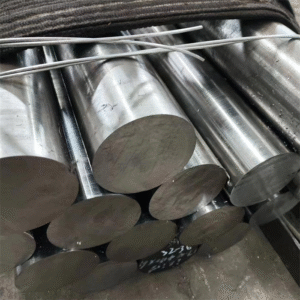Get in touch with us
Leave a message
Iron Nickel Alloy Rod is the ultimate choice for precision engineering and thermal stability applications. This remarkable iron-nickel alloy combines exceptional dimensional stability with low thermal expansion, particularly in extreme temperature fluctuations. The unique Fe-Ni alloy composition delivers reliability where other materials fail. Iron Nickel Alloy Rod maintains its integrity from aerospace components to electronic sealing under demanding conditions. Our precision-controlled Iron Nickel alloy formulations ensure consistent performance in your most critical low-expansion alloy applications.

Iron Nickel Alloy Rod is governed by standards like ASTM F15, ASTM F30, and AMS 5221, ensuring quality across grades such as Invar 36, Kovar, and Alloy 52. These standards define properties like thermal expansion, corrosion resistance, and finish. For instance, an Invar 36 Iron Nickel Alloy Rod aligns with ASTM F15 for low thermal expansion applications, while Kovar offers superior sealing properties per the same spec. Classification splits into types such as Invar 36 (low expansion), Kovar (glass-to-metal sealing), and Alloy 52 (magnetic applications), with grades further distinguished by finishes like bright polished or mill finish. Iron Nickel Alloy Rod, typically available in diameters ranging from 0.125″ (3.18mm) and above, adheres to similar standards but is often tailored for precision engineering applications.
Iron Nickel Alloy Rod comes in a wide range of sizes to suit diverse needs. Common dimensions include:
This flexibility ensures Iron Nickel Alloy Rod fits everything from precision engineering to large industrial builds.
Iron Nickel Alloy Rod comes in various forms and finishes, each tied to specific manufacturing processes:
| Grade | Characteristics | Applications |
|---|---|---|
| Invar 36 Rod | Extremely low thermal expansion. High dimensional stability. Good corrosion resistance. Non-magnetic. Moderate strength. | Precision instruments (e.g., clocks, lasers). Aerospace components. Scientific equipment. Thermostat rods. |
| 4J33 Iron Nickel Alloy Rod | Low thermal expansion. Excellent sealing properties (glass-to-metal). High stability in temperature fluctuations. Non-magnetic. | Electronic components (e.g., vacuum tubes). Glass-to-metal seals. Aerospace sensors. Precision engineering applications. |
A: Iron nickel alloy rod, such as Invar or Permalloy, is used in precision instruments like thermostats, magnetic shielding, and electrical components due to its low thermal expansion and high magnetic permeability.
A: Nickel steel alloy rod is used in structural applications, pressure vessels, and pipelines, offering enhanced strength and corrosion resistance, ideal for oil and gas and marine industries.
A: Iron nickel alloy rods, like Inconel, can be stronger than stainless steel, especially at high temperatures, with better corrosion resistance, though stainless steel may be more cost-effective for general use.
A: Iron nickel alloy rods can be expensive and harder to machine due to their high strength. Some alloys may also be susceptible to stress corrosion cracking in specific environments, requiring careful application.
A: Iron nickel alloy rods generally resist rust well due to their nickel content, which enhances corrosion resistance. However, rust can occur in highly oxidizing conditions or if the alloy has a higher iron content.
A: The price of an iron-nickel alloy rod varies by alloy type, size, and market conditions, typically ranging from $20 to $50 per kg. Contact us at sales for a precise quote based on your specifications.

Professional manufacturer of premium specialty alloys, offering stainless steel, Hastelloy, nickel-based alloys and processing services. Delivering superior metallurgical solutions for aerospace, petrochemical, marine engineering and other demanding industries.